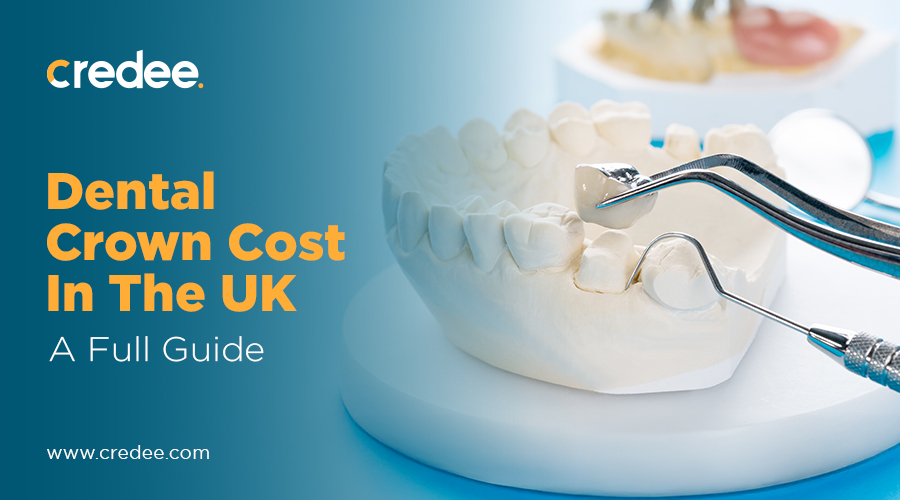
A perfect smile is just one denture treatment away, and it’s true: dental cosmetic procedures can do wonders to help you achieve that picture-perfect smile. But to get these treatments done, you need money. And honestly speaking, these treatments do come with a hefty price tag.
"Around 42 million people in the U.S. wear dentures."
So, are you curious about how much dentures cost with and without insurance? If yes, delve deeper into our blog because we will cover:
- How much do dentures cost?
- full dentures cost without insurance
- And, the average cost of dentures
What Are Dentures?
Dentures are carefully designed oral appliances, largely used to replace missing teeth. They, ideally, fall into three broader categories: full dentures, partial dentures, and implant-supported dentures.
Dentures can easily better your appearance, help with food chewing, speech clarity, and more importantly minor face deformities. While these are some of the end-result benefits you get with dentures, it is also a well-known fact, that if well-maintained, they will last you a good seven to ten years.
Explore Options For Free Dentures And Improve Your Dental Health.
How Much Do Denture Costs?
The cost of a denture will vary depending on a number of factors. However, the average cost of a traditional denture without insurance is somewhere between $1,000 to $3,000 per arch.
This cost is not exclusive of associated costs, the treatment type, or other factors. To give you a broader picture: the average cost of dentures spans from $2,000 for partials to $55,000 for extensive upper as well as lower fixed-denture treatments.
Types Of Dentures And Costs
The type of dentures you choose significantly impacts the cost. Basic acrylic dentures are typically the most affordable option. However, more advanced options like flexible dentures, metal-based dentures, or implant-supported dentures are more expensive due to the materials and technology involved.
1. Full Dentures
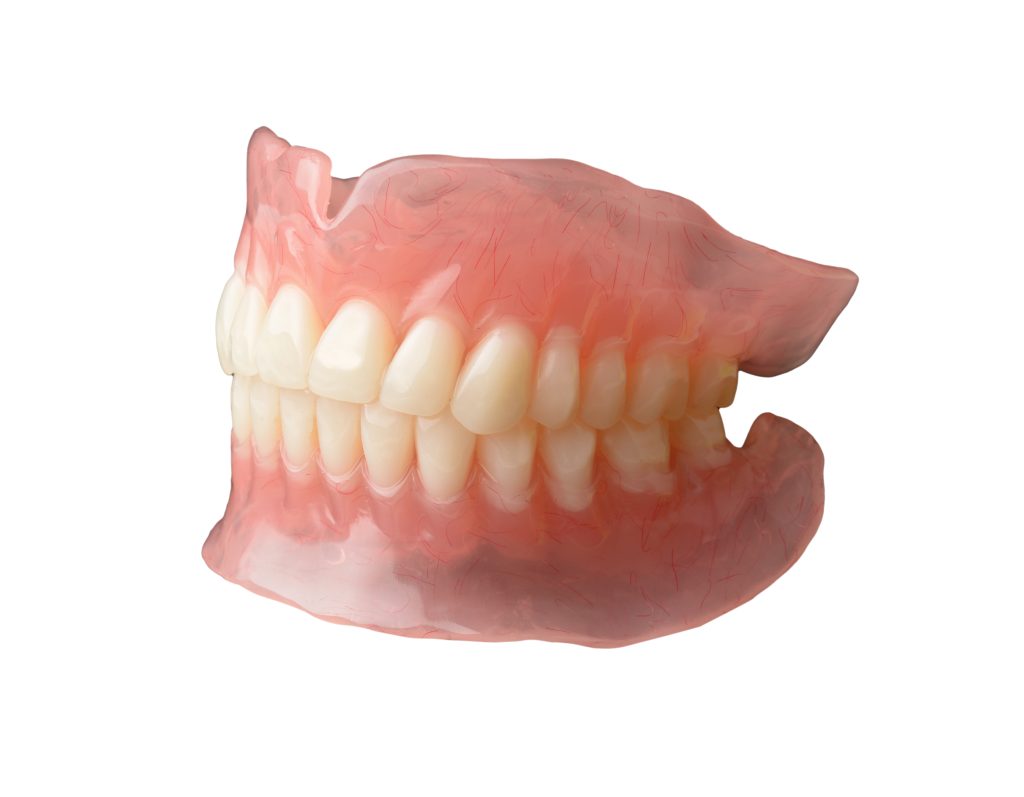
Full dentures, commonly known as complete dentures, are removable dental prosthetics designed to replace an entire arch of missing teeth. These dentures, whether for the upper or lower jaw, sit on the gum tissue and rely on suction to remain securely in place.
Pros:
- Restore a natural-looking smile while being affordable.
- Does not require any surgery.
Cons:
- May be challenging to wear until the mouth adjusts.
- Over time, it can contribute to bone loss.
2. Immediate Dentures
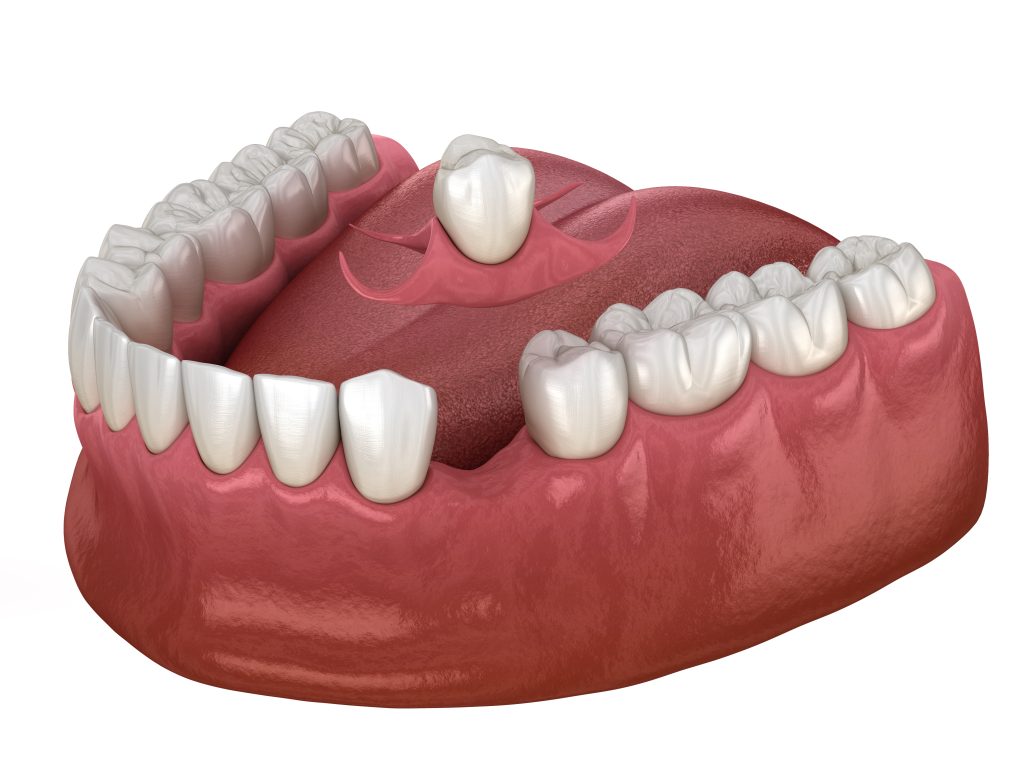
Immediate dentures are prosthetics that are inserted immediately after the extraction of natural teeth.
Pros:
- Restore the natural face shape.
- Reduces the bleeding.
Cons:
- May not fit perfectly as they are not customized.
- More expensive than conventional dentures.
3. Partial Dentures
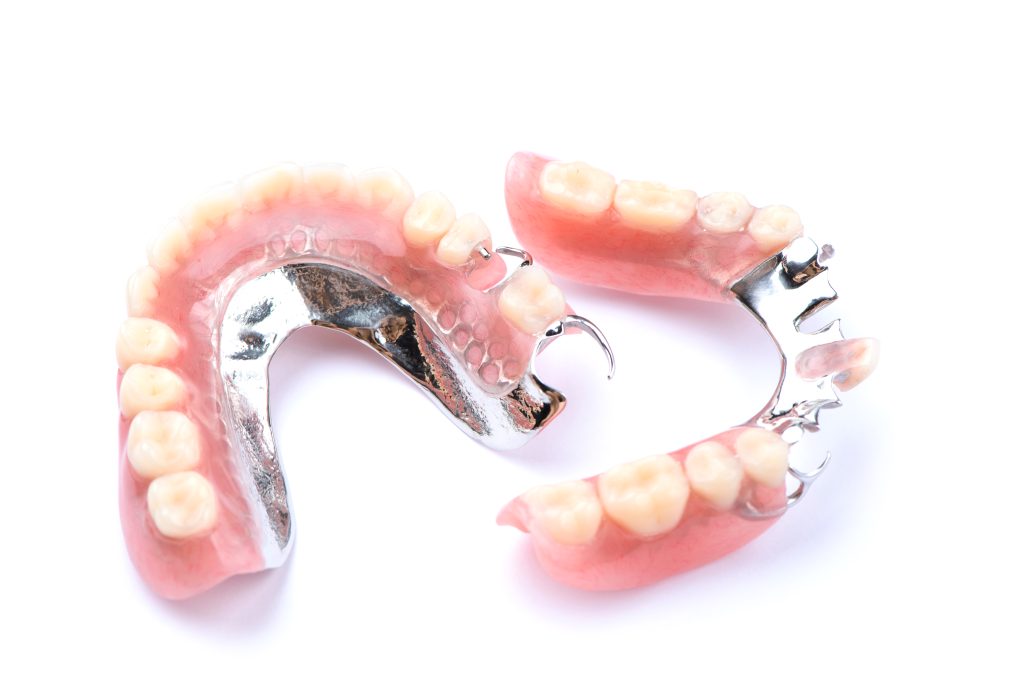
Partial dentures can fill the gaps left by several missing teeth but cannot replace an entire upper or lower set of teeth. To have them, it's essential to have some healthy teeth intact in both the upper and lower jaw.
Pros:
- Provide support to adjacent teeth.
- Blend in with the natural teeth.
Cons:
- May lead to discomfort, irritation, and sore spots in the mouth.
- Possibility of being damaged if not handled with care.
4. Fixed Dentures
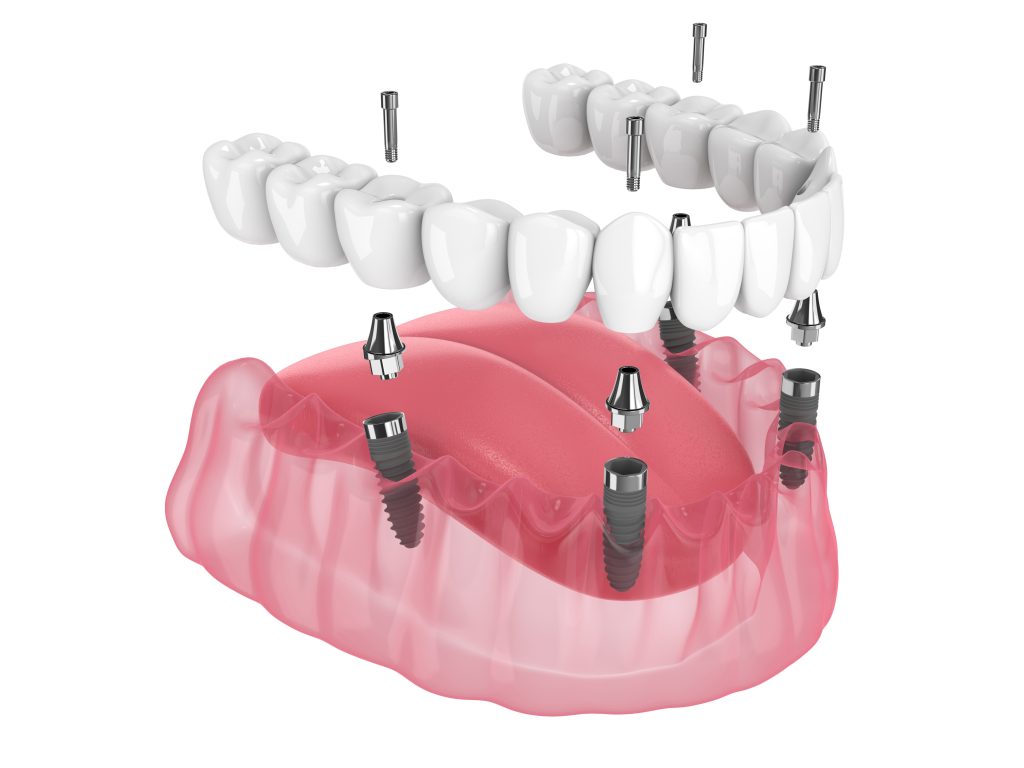
Fixed implant-supported dentures are affixed to dental implants, that in turn, are surgically embedded into the jawbone.
Pros:
- Prevents slippage or movement while speaking or eating.
- Can last for many years with proper care and maintenance.
Cons:
- Requires a surgical procedure to place the dental implants.
- Does not suit everyone.
5. Implant-Retained Dentures
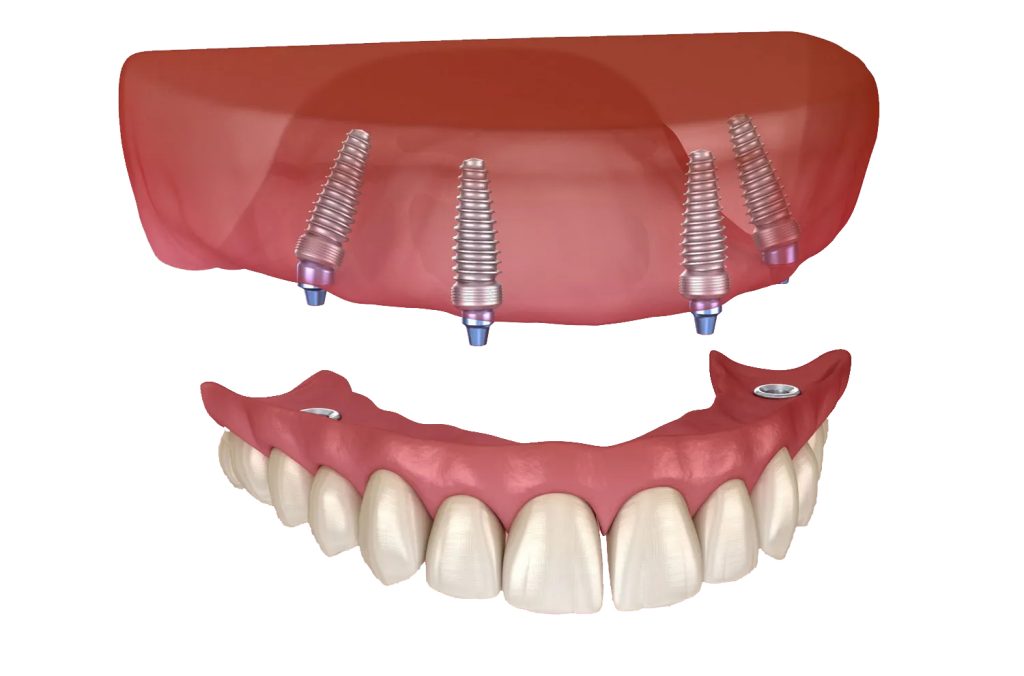
They use just a few implants to keep the dentures steady.
Pros:
- These implants simulate the function of natural tooth roots.
- There is no need for frequent replacements.
Cons:
- Long healing period, so infection or damage can occur.
- Requirement of regular cleaning and maintenance
Cost Of Dentures And Their Usual Lifespan
For those seeking information on, the “Cost of full dentures without insurance”, “How much do partial dentures cost without insurance” or “How much are dentures”, you'll find the necessary information in the table below.
| Type Of Dentures | Low Average Cost | High Average Cost | Typical Life Span |
|---|---|---|---|
| Full Dentures (upper or lower) | $1,000 | $4,000 to $15,000 | 5 - 10 years |
| Immediate Dentures | $600 | $1,000 | 6 - 8 months |
| Partial Dentures | $500 | $2,500 | 5 - 15 years |
| Fixed Dentures | $1,500 | $15,000 | 5 - 10 years |
| Implant-Retained Dentures | $1,000 | $1,600 | 10 - 20 years |
What Additional Denture Costs Are There?
There are several additional costs associated with dentures beyond just the initial fitting or purchase. Here's a breakdown:
- Consultation Fees: Before getting dentures, you have to consult a dentist to assess your oral health. This may cost around $100.
- Tooth Extraction: While preparing for dentures, a tooth extraction will typically cost you $300.
- Anesthesia: Anesthesia fees for tooth extractions begin at $250 per hour, with subsequent charges of $200 per 15 minutes.
- Denture Type And Material: A silicone or wax is used to craft a mold of your teeth, with an average cost of $35.
- Panoramic X-ray: An X-ray is used to get a clearer view of your jaw and costs roughly $130.
- Tissue Conditioning: This process improves the fit and comfort of dentures and usually costs around $190.
- Denture Relining: Denture relining conducted in an office costs $400, while the one conducted in a laboratory costs $500.
Factors That Affect Denture Cost
1. Preliminary Procedures
Although dentures are a viable option for most individuals who have lost many or all of their teeth in one arch, some may need preliminary procedures. These preparatory treatments, like tooth extractions or periodontal therapy, are quite common and can increase the total cost.
2. Materials Used
Dentures can be made from various materials, and each of them has its own cost implications. For example, acrylic resin is commonly used for the base of dentures, but premium materials like porcelain or composite resins can increase the overall cost.
Denture Cost According to the Material Used:
- Resin base - $1,500
- Flexible nylon - $1,700
- Metal cast - $2,000
Worried about dental implant costs? Check out grants and financing options.
Explore OptionsAre There Alternatives To Dentures?
1. Dental implants are like artificial tooth roots made of strong materials such as titanium.
2. Implant-supported bridges fill the gap left by missing teeth, but they get support from dental implants instead of natural teeth.
3. Overdenture sits on top of one or more of your own teeth, roots that have been prepared, or dental implants.
4. Snap-in denture has a base with special attachments or snaps built into it that fit over your gums and jawbone.
5. Fixed bridges have crowns, firmly attached to the neighboring teeth, filling the space in your mouth permanently.
6. Resin-bonded bridges are a type of fixed dental prosthesis designed to fill the space left by a single missing tooth.
Cost Of Dentures With Insurance
1. Dental Insurance
How much the denture costs with insurance in the USA varies widely depending on the specific plan and provider. In case of reimbursement, many insurance providers pay half of your denture expenses, subject to the plan's maximum benefit and minus any applicable deductibles. Moreover, some plans impose restrictions, such as covering only one set of dentures or one arch every 5 to 7 years.
2. Medicaid
Medicaid is a state and federally-funded program in the US. Eligibility requirements can vary, but generally, it is available to low-income individuals, families, children, pregnant women, elderly adults, and people with disabilities.
Additionally, in 31 states, Medicaid provides full coverage for dentures, whereas, in certain states, getting only one denture for a lifetime is limited.
Are There Other Ways To Pay Denture Costs?
1. Denture Assistance Programs
Denture assistance programs offer financial aid or resources to help cover the cost of obtaining dentures. For example, grants, low-cost fee services, or vouchers for purchasing dentures.
2. Credit Card
Using a credit card demands careful planning and financial prudence, as high interest rates can significantly inflate the overall cost, potentially surpassing that of the dentures themselves. However, if you can commit to paying off the balance in full each month, this approach could benefit you.
3. Healthcare Savings Accounts
A Health Savings Account (HSA) is a tax-advantaged savings account available to individuals enrolled in a high-deductible health plan (HDHP). Moreover, it allows you to set aside pre-tax money to pay for qualified medical expenses, including dental care, such as dentures.
4. Dental Payment Plans
Accessing funds through grants or credit cards typically involves a time-consuming process. Besides this, these choices might furnish funds slowly in unexpected emergencies. However, through dental payment plans, acquiring the necessary funds to afford dentures becomes readily accessible. Credee offers flexible payment plans with a no-credit-check policy and approves 97% of patients seeking dental payment options.
Frequently Ask Questions
1. How Much Do Dentures Cost With Extractions With Insurance?
On average, full dentures can range from $600 to $5,000 or more, while partial dentures may cost between $300 to $3,000. Prices for extractions can range from $75 to $450 per tooth. Nevertheless, insurance plans cover a portion of the cost of both extractions and dentures, and you may still be responsible for copayments, deductibles, and any costs exceeding your plan's coverage limits.
2. How Much Do Full Dentures Cost Without Insurance?
A complete denture cost typically ranges from $1,000 to $15,000. The final price varies depending on the techniques used, the materials utilized, and the duration of the procedure.
3. How Much Do Partial Dentures Cost Without Insurance?
Partial dentures can range in price from $500 to $1,500 when insurance coverage isn't available.
4. What Is The Cheapest Place To Get Dentures Without Insurance?
Generally, states with lower costs of living may have more affordable dental care. However, the cheapest places to get dentures without insurance are Alabama, Kentucky, Mississippi, Tennessee, and Texas.
5. Are There Any Dental Financing Options Available To Cover The Cost Of Dentures?
There are dental patient financing options available such as Credee to make dental care services more accessible. Credee offers flexible payment plans with a no credit check policy and approves 97% of patients.
6. Where Can I Get Free Or Low-cost Dentures?
If you are looking for free or low-cost dentures, you can explore options such as dental schools, local health departments, charitable organizations, and community health clinics.
7. How Long Do Dentures Last?
The lifespan of full dentures typically ranges from 5 to 10 years, whereas partial dentures can remain effective for up to 15 years. Nevertheless, over this timeframe, changes in your oral cavity and the dentures' condition may cause discomfort and a decline in quality.
Wrap Up
To sum up, it’s evident that dentures offer significant benefits for overall health and well-being beyond restoring oral function. What’s more, dentures do - prevent face-sagging which can happen when you lose teeth.
The denture cost without insurance ranges from $6,000 to $15,000. On the other hand, you can manage the cost of dentures through insurance, dental assistance programs, credit cards, or a health savings account (HSA). Above all, there are potential challenges associated with these options. They may consume a considerable amount of time, and on top of that, eligibility criteria may limit access for some individuals.
Here's where Credee steps up with its dental payment plans. With Credee, accessing dental patient financing becomes effortless, ensuring patients receive necessary treatments without delay.

Discover Credee's flexible payment solutions and see how they benefit your business and delight customers!
Book A Demo Now


